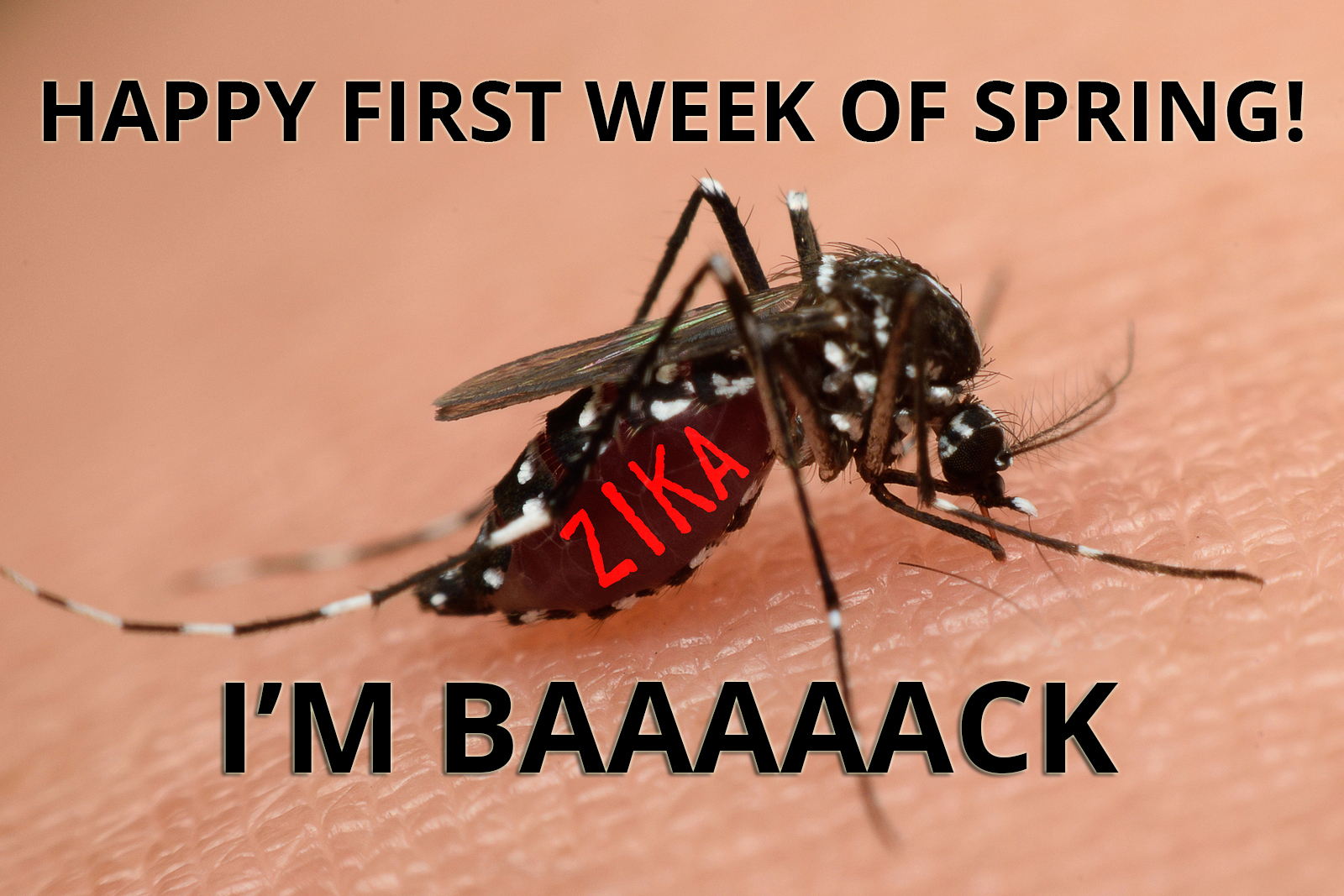It’s the first official week of Spring (aka Mosquito Season)! Time to start thinking about mosquito prevention.
The risk of contracting mosquito-borne Zika virus in the U.S. is at an all-time high, specifically dangerous for pregnant women or those trying to conceive as the virus can cause serious birth defects. According to the CDC, 222 cases of Zika were reported as of March 15, 2017, acquired through local mosquito-borne transmission in Florida and Texas. And because there’s currently no vaccine for Zika, the only way to prevent it is with mosquito bite prevention. Here’s how you can minimize your risk and limit the spread of Zika.
Home Mosquito Control
The best way to prevent mosquito bites when spending time outside this spring and summer is to reduce mosquito populations around your home with a mosquito control program. Usually consisting of monthly treatments, a professional mosquito control program includes:
- Removal and/or reduction of mosquito resting and breeding sites – any areas that accumulate standing water like planters, toys, bird baths, pet bowls, containers, etc.
- Larvicide treatments to mosquito breeding sites that cannot be removed, targeting mosquito larvae which inhibits maturity into adult mosquitoes
- Adulticide treatments to mosquito resting sites – shaded areas, shrubbery, small trees, ivy, etc. – reducing the amount of adult mosquitoes around your home
- Monthly inspections and recommendations on how to reduce mosquito breeding and resting areas
Other ways you can prevent mosquito bites:
- Cover arms and legs when spending time outdoors with light, loose-fitting clothing
- Keep mosquitoes out of your home by identifying entry points like broken, damaged, or missing window and door screens and make necessary repairs
- Reduce mosquito breeding areas by eliminating any items inside that can accumulate standing water
- Use EPA-registered insect repellents that contain DEET, picaridin, IR3535, oil of lemon eucalyptus or para-menthane-diol, or 2-undecanone

